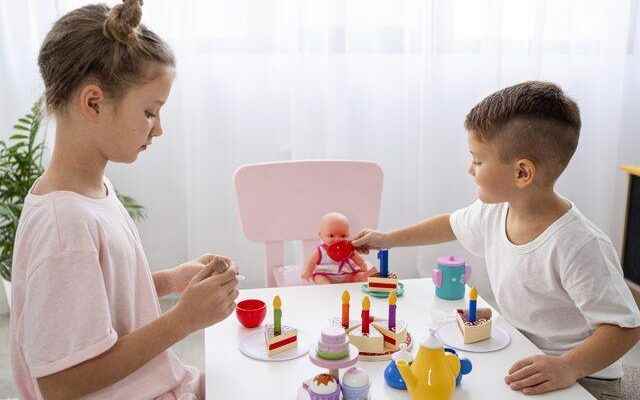Educational Consultant Murat Karcıoğlu stated that the power underlying parents’ desire to know and wonder about the child’s gender actually stems from their desire to predict what awaits them in the parenting process, and explained the reasons for the formation of gender-based stereotypes.
Murat Karcıoğlu: “From the moment we are born, the mind tends to “categorize” cognitively in making sense of the outside world and processing inputs. Categorization speeds up and facilitates the mental processing of information. The existence of an innate sense of belonging in children forces the child to become a part of a gender group over time. Thus, the children hold on tightly to these gender stereotypes that adults attach great importance to,” she says.
GENDER PATTERNS DO NOT REFLECT INTEGRITY
The roles that society assigns to women or men cause the child to experience a sense of inadequacy if he does not adapt to these roles. However, generalizations based on gender do not reflect the truth. A boy may be more sensitive or talkative than a girl, and a girl may be stronger or more successful in numeracy than a boy.
IT IS IMPORTANT TO FIGHT PEER BULLYING BASED ON GENDER CLICKERS IN SCHOOLS
The underlying factor in gender-based bullying in schools is that children know a lot about their own gender but very little about the opposite sex. When the child’s place in life begins to be dominated by gender, he becomes ruthless on his peers who do not fit the role assigned to him, and tends to marginalize these children because he does not find them suitable for the group dynamic.

In this regard, boys are much more cruel to their fellows. The child who is marginalized, that is, exposed to bullying, experiences a feeling of shame. In this period, it is very important for parents to be with the child and school-family cooperation in combating bullying.
GENDER stereotypes and school life
Gender stereotypes sharpen with the child’s school life. Labeling in the environment plays a major role in school-age children’s choice of their friends from their own sex. Gender-based order starts to show itself with gender-based color separations, groupings and rankings from the entrance of kindergartens.
The child wants to do the “right” thing in the face of gender stereotypes and plays games with their fellows. When it comes to the primary school, the school gardens become a place where the fresh and salt water in the Cebel-i Tarık Strait do not mix with each other. Thus, the child begins to be involved in social life with these roles assigned to him.
INFLUENCES THE CHILD’S SCHOOL SUCCESS AND PROFESSIONAL CHOICE
The opinions that the verbal skills of girls are more developed than boys or that boys are more successful in mathematics than girls do not match with the results of scientific studies, but with these gender-based labels, boys are allowed to attend classes such as reading, writing, painting, and music at school; On the other hand, it causes girls to have negative attitudes towards classes such as mathematics, physical education and science. The social labeling of the “boy’s job” or “girl’s job” occupational groups restricts the child’s choice of profession in the classification resembling this caste system, even if he has an interest, ability and success in a job.

ATTENTION TO TOY SELECTION
Buying dolls for boys to play with; It helps them recognize their feelings, empathize, and take responsibility for others. Since no boy plays with a doll, his masculine gender identity does not change, but in case of the possibility of becoming a “father” in the future, he turns into a parent who takes more responsibility on his child and establishes a healthy bond with him. It’s not just girls who will become parents in the future. Otherwise, the “father figure” cannot go beyond being a rule maker, authority protector and cash dispenser in the eyes of his child.
NOT BEAUTIFUL GIRLS; GROW STRONG GIRLS
Growing up with Barbie toys from a young age, girls take it upon themselves to look beautiful. The gender stigma that girls should always look thin and beautiful brings depression in girls along with puberty. Negative body image hurts girls’ self-confidence and self-image. In this period, girls prefer to stay passive in the lessons due to their concerns about being disliked, and they have difficulties in their social relations based on these stereotypes.
